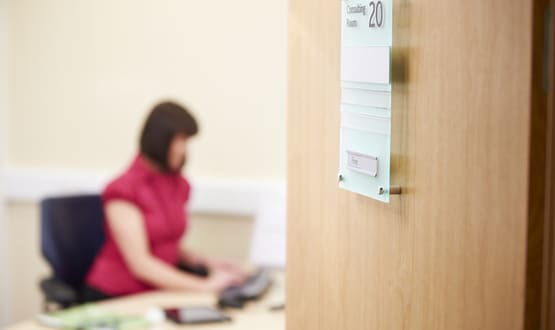Call for acute patients to get OOH ‘navigation hubs’
- 29 October 2007
Navigation hubs accessed via a single telephone number distinct from 999 should be set up to improve care of patients with acute medical illness, according to a new report from the Royal College of Physicians.
In its report, Acute medical care: The right person, in the right setting, first time , the RCP describes current arrangements for out of hours care outside hospital as largely inadequate and inflexible. It says patients end up going to hospital because there is nowhere else offers the reassurance and care they need.
The report, drawn up by the RCP’s Acute Medical Taskforce, claims that a wider range of acute services outside hospital is needed, with access controlled from a single point.
It says the creation of local navigation hubs would help to ensure that ill people are directed as soon as possible to the most appropriate clinical decision maker, who can diagnose their condition accurately and start treatment.
The taskforce says it wishes to replace the current approach it characterises as ‘see and greet’ with ‘see and treat’ services.
Although 999 calls would still be used for emergencies, the report says the navigation hub would be a preferred point of contact for all other acute medical care to ensure that the patient is directed to the right place. This would range from self-care advice, through to referral of the more acutely unwell patient.
A significant objective would be to direct patients away from an unnecessary acute hospital admission, in favour of attendance at an urgent care centre, an early outpatient or
GP follow up, or a dedicated specialist outreach service where these options are available, appropriate and safe.
The taskforce, which includes more than 40 representatives involved in clinical care for acutely ill people, suggests that the creation of a single well-publicised telephone number, distinct from 999, could be integrated with a “more locally relevant” NHS Direct.
It says there is also a need for more extensive public information about the role, remit, and boundaries of the various services within the emergency care network.
The report also calls for acute care to be made a priority in the introduction of electronic patient records, arguing this will help standardise the ongoing documentation by multiple practitioners and carers and also improve hand-over and transfer of care documentation.
The taskforce recommends that clinical assessment, clinical documentation and clinical management of common acute medical conditions should be standardised nationally, to reflect best practice. It says this would improve clinical practice, support clinical governance, and facilitate case review, transferability of clinical information and clinical audit. The report also recommends the introduction of a national NHS Early Warning score (NEW score) to aide assessment of illness severity and prompt an appropriate level and speed of response.
In addition, the RCP report says accurate clinical coding information should be recorded by a competent clinician on the clerking forms and recommends that the provision of reliable, high quality, IT support is prioritised in acute clinical areas to support efficient working of the emergency care network.
Professor Bryan Williams, chair of the taskforce and Professor of Medicine at the University of Leicester, said: “Getting it right for acute medical care needs changes in the way care is organised to get the most and the best out of staff and local resources and to provide fast and efficient care for patients. It needs changes in the way we work as professionals across the board, to provide wider and more flexible access to clinical decision makers. This report provides the template for a world class acute medicine service – but change itself requires more empowered clinical leadership from within the service."
Links




